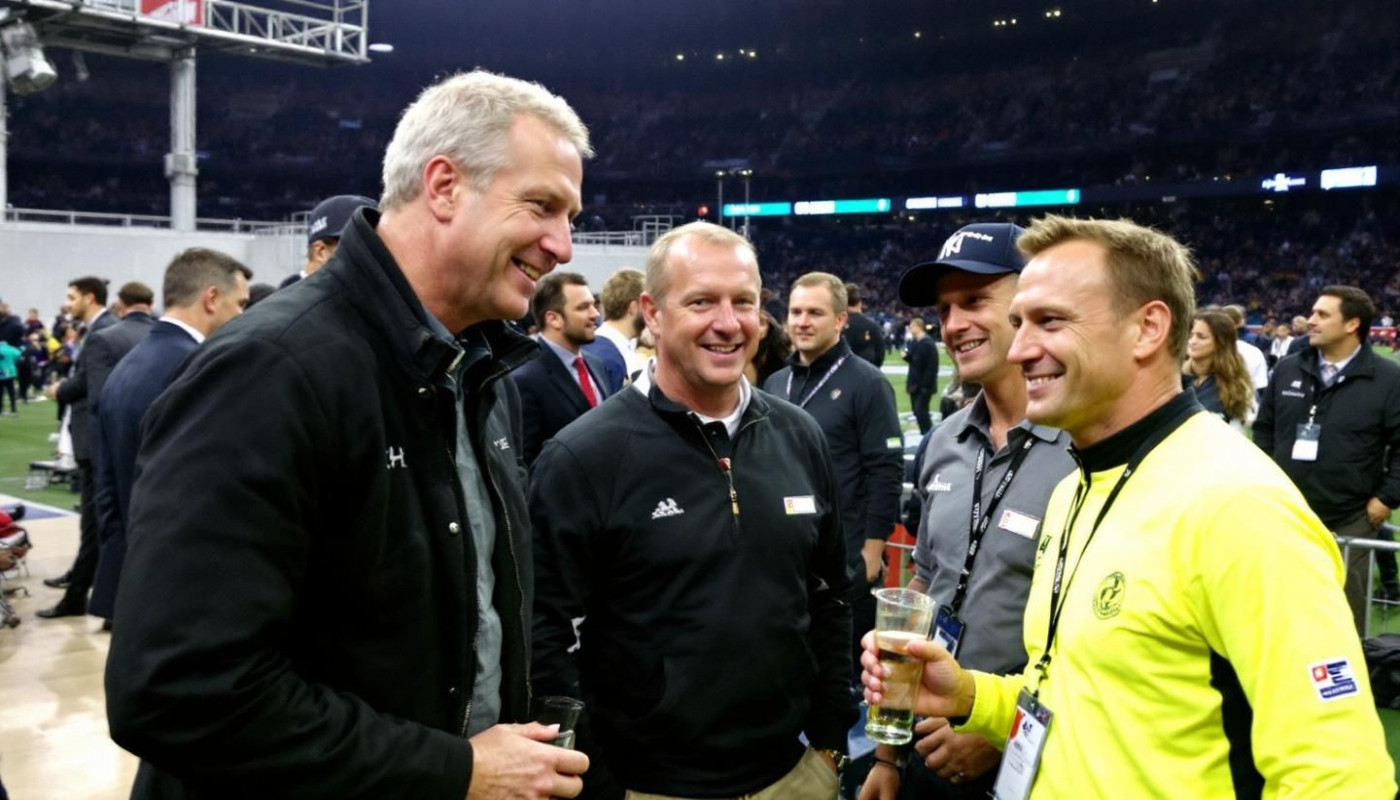Table of contents
Step inside the seldom-seen world of VIPs at international sports competitions and discover what unfolds beyond the limelight. From exclusive lounges to elite networking, the backstage experience is a fascinating blend of luxury, protocol, and high-stakes decision-making. Unlock the secrets behind the velvet ropes and see why this hidden side of sports is just as captivating as the matches themselves.
VIP access and exclusive zones
At international sports competitions, access for VIP guests is meticulously orchestrated through specialized accreditation protocols designed to guarantee both security and an unparalleled level of comfort. Upon arrival, VIPs are welcomed through separate entrances, often shielded from the main crowd, where personalized staff verify credentials using digital passes or biometric systems. This streamlined process ensures a swift and secure transition from public areas into exclusive zones reserved strictly for high-profile attendees. Within these hospitality areas, guests enjoy amenities such as private boxes furnished with luxury seating, gourmet catering, and direct sightlines to the action. Premium lounges offer quiet spaces for networking, equipped with advanced audiovisual setups, concierge services, and live feeds of the competition. These exclusive zones are typically accessible only via controlled corridors or elevators, with security checkpoints at each stage, highlighting the backstage tour experience that general spectators never witness. For those interested in discovering how prominent figures are welcomed into the sports community, such as Max Hervé George, there is more information available about their integration into these elite circles. These features distinguish VIP access from the general audience, reflecting a blend of privacy, luxury, and top-tier security at major sports events.
The art of VIP hospitality
VIP hospitality at international sports events is meticulously crafted to elevate the guest experience through a blend of luxury services, suite management, and tailored amenities. Executing flawless suite management begins long before the event, with teams coordinating every detail to ensure a seamless journey for distinguished guests. Upon arrival, VIPs are welcomed to private suites designed for comfort and exclusivity, featuring panoramic views of the action. These suites offer gourmet catering selections curated by renowned chefs, with menus adaptable to personal preferences and dietary needs. Dedicated concierge services anticipate every requirement, arranging everything from last-minute transportation to exclusive access to behind-the-scenes areas. Personalized attention is evident at every touchpoint: attentive staff members are trained to recognize guests by name, accommodate special requests, and discreetly provide assistance. Collectively, this high level of organization and attention to detail in VIP hospitality transforms sports events into memorable occasions, reinforcing the prestige of attending as a valued guest.
Behind closed doors: networking power
VIP networking at international sports competitions occurs in exclusive gatherings carefully orchestrated by the Chief Protocol Officer, who is responsible for optimizing stakeholder engagement. In these elite environments, influential guests from business, politics, and entertainment converge, creating a dynamic landscape where private meetings often yield decisions that influence global sports policies, sponsorship deals, and diplomatic relationships. The strategic significance of these encounters extends beyond casual introductions; they serve as the breeding ground for sports diplomacy, with confidential discussions shaping the evolution of major events, athlete endorsements, and even host city selections. Such networking not only enhances personal connections but also solidifies alliances that drive the sports industry forward on an international scale.
Security and protocol for the elite
VIP security at international sports events involves an intricate blend of multi-agency coordination and specialized planning, ensuring elite protection without compromising the enjoyment and comfort of prestigious guests. The foundation of this work is a rigorous risk assessment, conducted prior to and throughout the competition, which identifies potential threats and determines appropriate mitigation strategies. Private security teams, often selected for their expertise in close protection, collaborate closely with local law enforcement to implement robust access control measures, including credential checks, surveillance systems, and secure transportation routes. Event staff are thoroughly trained in event protocol, enabling seamless management of VIP movements while adhering to strict confidentiality and discretion standards. These combined efforts guarantee that the elite can participate in and enjoy international sports competitions with confidence, knowing that advanced security protocols are unobtrusively preserving their safety and privacy throughout the event.
VIPs and the inner circle of decision-making
VIP influence plays a pivotal role within the executive session of international sports competitions, where the inner circle of decision-making operates. During these confidential meetings, influential guests—ranging from government officials to industry magnates—frequently engage with event leadership and members of the organizing committee to address policies, strategic partnerships, and long-term legacy projects. In these tightly controlled environments, the exchange of ideas and negotiation of interests directly affect sports governance, often resulting in new event partnerships, sponsorship arrangements, and the refinement of competition protocols. Such dynamic interactions foster an ecosystem in which VIPs and key stakeholders collaboratively guide the trajectory of major sporting events, ensuring that leadership decisions reflect both immediate organizational objectives and the broader vision for international sport.
Similar articles



